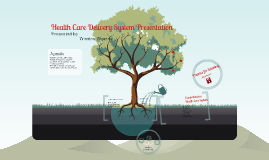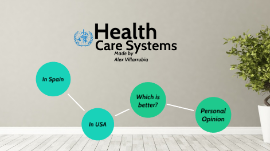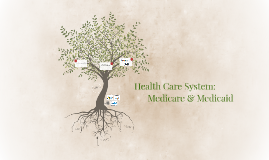Health Care System
Transcript: Health Care System in the Philippines Learning Team No. 4 Tangan - Guide Questions Guide Questions With all the problems in our health system that surfaced during the pandemic, what urgent reforms need to be addressed with the way our DOH and health-related institutions operate? In light of the pandemic, what glaring problems have surfaced about our current Universal Health Care Law and PhilHealth? What specific policies can be implemented to strengthen public health institutions and primary health care practices at the LGUs starting with the barangays? Republic Act No. 11223 The Republic Act No. 11223, also known as the Universal Health Care Act 1 Section 2. Declaration of Principles and Policies. - It is the policy of the State to protect and promote the right to health of all Filipinos and instill health consciousness among them. Towards this end, the State shall adopt: 2 (a) An integrated and comprehensive approach to ensure that all Filipinos are health literate, provided with healthy living conditions, and protected from hazards and risks that could affect their health; (b) A health care model that provides all Filipinos access to a comprehensive set of quality and cost-effective, promotive, preventive, curative, rehabilitative and palliative health services without causing financial hardship,, and prioritizes the needs of the population who cannot afford such services; 3 (c) A framework that fosters a whole-of-system, whole-of-government, and whole-of-society approach in the development, implementation, monitoring, and evaluation of health policies, programs and plans; and (d) A people-oriented approach for the delivery of health services that is centered on people’s needs and well-being, and cognizant of the differences in culture, values, and beliefs. Issues and Concerns Encountered During the Height of Covid-19 Pandemic Issues and Concerns 1 Accessibility to quality and affordable health care services. Shortage of health workers, equipment, facilities, infrastructure, and supplies. (Most Health Care Facilities were not in congruent with DOH standards affecting Philhealth benefits and payments.Lack of isolation units for infectious diseases and public cemetery to facilitate the disposal of dead bodies due to infectious diseases.) 2 The corruption allegations against PhilHealth officials and health care providers, which have eroded public trust and confidence in the agency and the law. (alleged irregularities and anomalies in PhilHealth’s transactions, such as overpayments, ghost claims, fraudulent schemes, and mismanagement of funds.) Poor/Improper implementation of the Disaster Reduction and Risk Management system. Policies that can be implemented *Legislation of fixed percentage for Maintenance and Other Operating Expenses (MOOE)/School Education Fund for the health care program such as policies on: a. Policy to Strengthen information dissemination on health literacy in the barangay level. b. Policy for Health and wellness program. c. Policy on the establishment of Public Cemetery for dead bodies due to infectious diseases. *Strengthen and increase legislation of the Energy royalty tax percentage for health services fund.(Energy Regulations (ER) 1-94 of the Electric Power Industry Reform act of 2001 (EPIRA) as additional source of fund for the policies recommended above. *Policy on upgrading incentives and benefits of Community Health Workers by passing into law the Barangay Health Workers’ Incentives and Benefits Act (House Bill No. 7934), which was filed in 2020 and seeks to provide barangay health workers (BHWs) with regular monthly honoraria, hazard pay, social security benefits, and other incentives. (The bill also aims to enhance the training, accreditation, and supervision of BHWs, who are considered as the backbone of primary health care in the Philippines.) Challenges and Opportunities in Reforming the Health Systems during the pandemic Challenges and Opportunities in Reforming the Health Systems during the pandemic Challenges1 *Leveraging the current response to strengthen both pandemic preparedness and health systems - using the resources, capacities and innovations that have been mobilized for COVID-19 to address other health needs and priorities, such as primary health care, noncommunicable diseases, mental health and health equity. *Investing in essential public health functions including those needed for all-hazards emergency risk management ensuring that countries have the core capacities to prevent, detect and respond to public health threats, such as surveillance, laboratory, risk communication, infection prevention and control, and vaccination *Building a strong primary health care system as a foundation for bringing health services closer to communities by providing comprehensive, integrated, person-centered and quality care that covers the continuum of promotion, prevention, treatment, rehabilitation and palliation *Engaging the whole-of-society so that all sectors work together

















